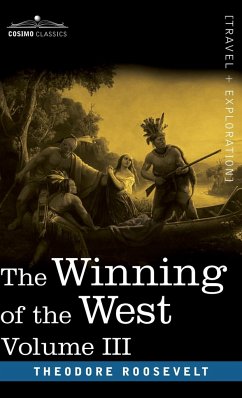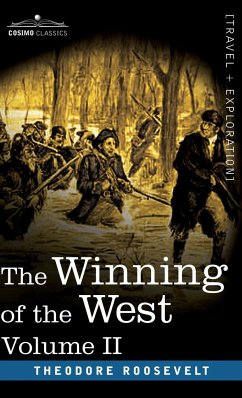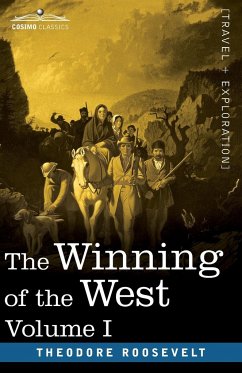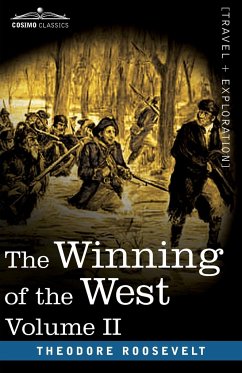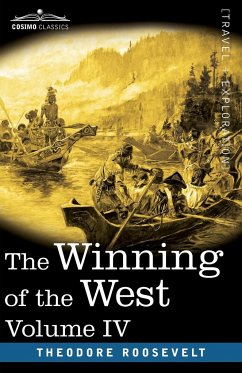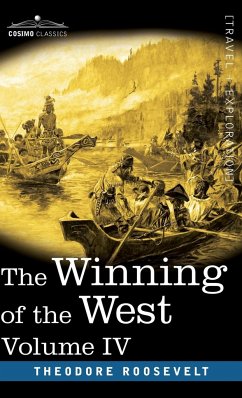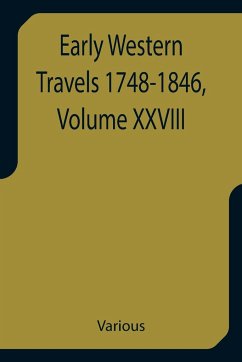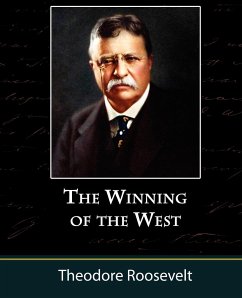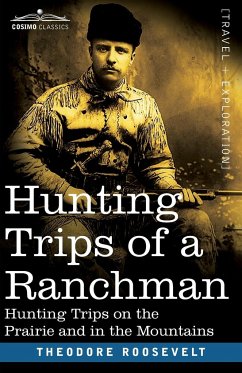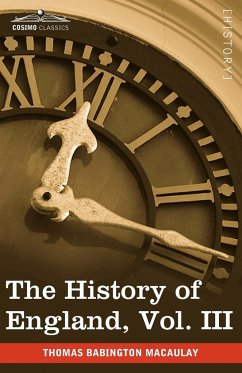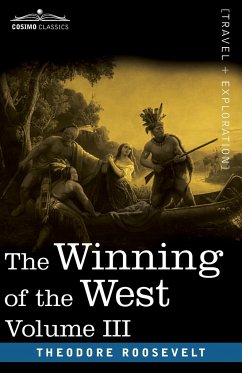
The Winning of the West, Vol. III (in four volumes)
The Founding of the Trans-Alleghany Commonwealths, 1784-1790

PAYBACK Punkte
13 °P sammeln!
"During the past three centuries the spread of the English-speaking peoples over the world's waste spaces has been not only the most striking feature in the world's history, but also the event of all others most far-reaching in its effects and its importance." -Theodore Roosevelt, The Winning of the West, Vol. I The Winning of the West Vol. III-The Founding of the Trans-Alleghany Commonwealths, 1784-1790 (1889) is the third part of Theodore Roosevelt's four-volume exciting saga about the settling of the American West. Many considered this Roosevelt's most important book. Volume III focuses on ...
"During the past three centuries the spread of the English-speaking peoples over the world's waste spaces has been not only the most striking feature in the world's history, but also the event of all others most far-reaching in its effects and its importance." -Theodore Roosevelt, The Winning of the West, Vol. I The Winning of the West Vol. III-The Founding of the Trans-Alleghany Commonwealths, 1784-1790 (1889) is the third part of Theodore Roosevelt's four-volume exciting saga about the settling of the American West. Many considered this Roosevelt's most important book. Volume III focuses on the continued westward movement of the first settlers to the Northwest and Southwest, their involvement in the American Revolution and their fights with Indians in the aftermath of the Revolution.





